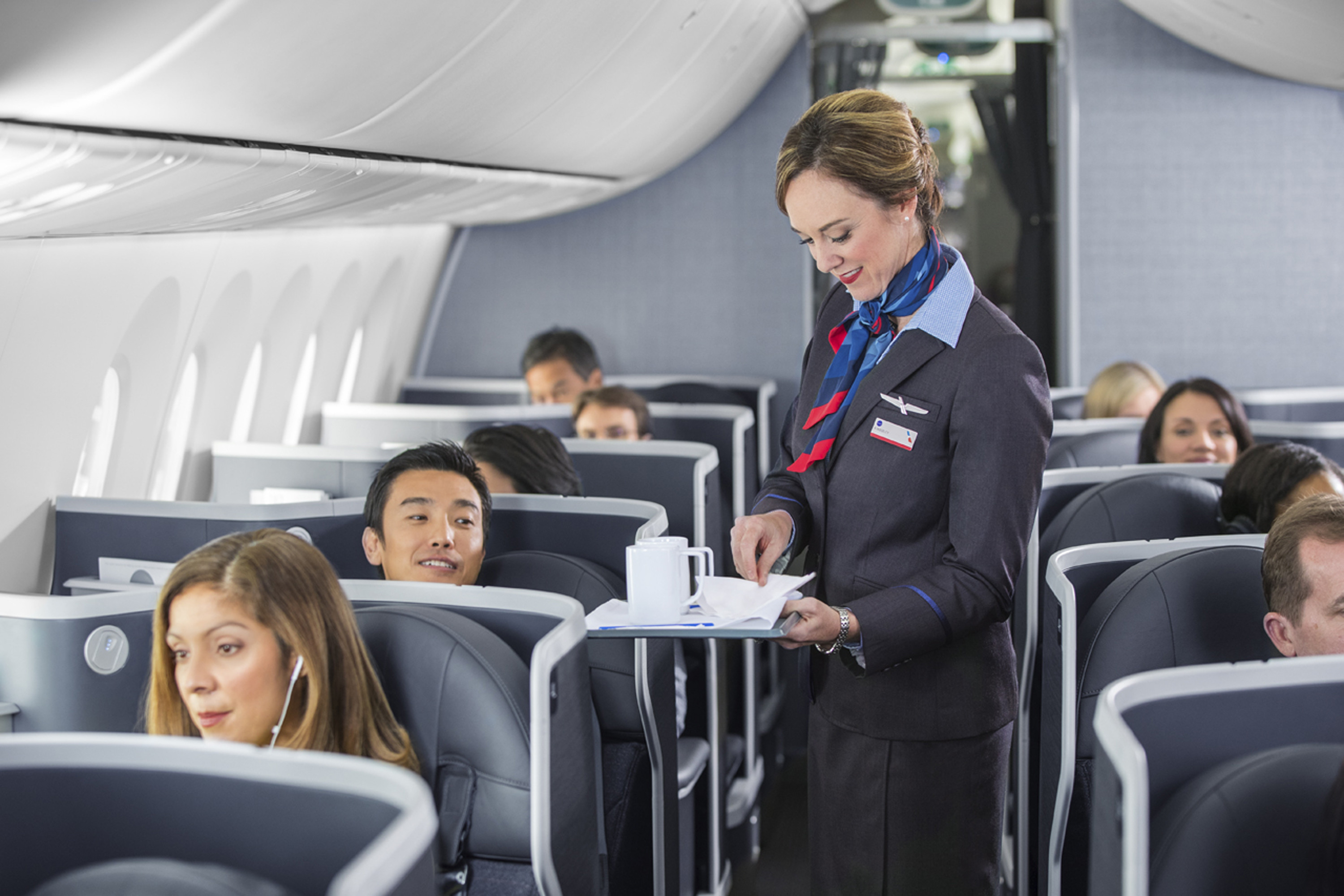Over the past couple of years, airline passenger removals have seemed to be an increasing trend, much to the embarrassment of both airlines and removed passengers. Beginning with the forcible removal of a passenger from a United Airlines flight last April, a spate of similar incidents went viral on social media as passengers recorded and uploaded videos to Facebook, Twitter and YouTube.
Such gaffes have instilled disgust and scorn for airlines in the hearts and minds of social media users around the world, first for United Airlines, and then for the series of airlines that fell like dominoes in their wake.
So, what is going on behind the scenes of these incidents? What is causing the removals, and why do they seem to be an increasingly common trend? As a seasoned traveler, let me break it down for you.
Travelers need to understand that there’s a whole list of things airlines are not obligated to do, such as get you to your destination on time, give you a particular seat — or any seat — or really, serve or transport you at all.
Passengers can find information about airlines’ lack of obligations in the dozens of pages of fine print attached to ticket invoices, which you can liken to the 50-page policy iPhone users “agree” to when updating iOS — neither of which anyone ever reads.
Unfortunately, it would take so long to read through airline terms and conditions that the transaction would likely time out before the purchaser finished. So, it isn’t surprising that passengers don’t always understand the fine print, which ultimately causes issues to arise.
Fine print confusion brought Delta Airlines unwanted negative publicity in April 2017 when the airline booted the Schear family off a flight from Hawaii to California. Their 2-year-old toddler was in a car seat attached to one of their four purchased seats when a flight attendant informed them they would need to hold the toddler in their lap so another passenger could occupy the toddler’s seat.
Aggravated, the father stated repeatedly that he had purchased that seat, but he soon revealed that the ticket was purchased for his 18-year-old son, who had taken an earlier flight to free up his seat for the toddler. That said, airlines make most tickets nontransferable and void them if the passenger identified on the ticket does not check in prior to boarding time.
While the family did purchase the seat, they could not transfer it from their 18-year-old to their toddler, and Delta voided it when the son did not check in. Once a ticket is voided, the seat goes back into the airline’s inventory, and they can do with it as they please.
Upon realizing their mistake, the family offered to relinquish the seat in exchange for permission to remain on the plane; the airline denied the request, and the flight’s crew threatened the Schears with arrest if they refused to de-plane.
Consequently, they spent $2,000 booking new flights for the following day. As a result, the father posted his video to YouTube, and Delta eventually issued the family an apology and a refund.
Unbelievably, no one — including the Federal Aviation Administration — is fully tracking airline passenger removals or the broad categories into which they fall.
Yet, the Department of Transportation reported that 475,000 passengers were bumped from U.S. domestic flights in 2016, mostly due to overbooking, which appears to be reasonable when compared to the nearly 632 million passengers who board domestic flights in the U.S. each year. Percentage-wise, it works out to just under .07 percent.
The DoT does not, however, include passengers who voluntarily give up their seats in exchange for compensation in their reporting, and it is estimated that there are between 10 and 100 times more voluntary than involuntary boarding denials.
Viewing voluntary and involuntary boarding denials as parts of a whole presents a clearer picture that indicates between .7 and 7 percent of domestic passengers are denied boarding in a given year. As a frequent traveler who has experienced both voluntary and involuntary boarding denials, the latter figure seems more accurate and likely to me.
A closer look at the practice of overbooking — which explains the bumping of these passengers — reveals that the circumstances that once required airlines to oversell flights no longer really exist.
Crewmembers can remove or refuse to board passengers at will, which quite often translates to “bumping” passengers from overbooked flights. Airlines have been permitted to overbook flights in order to “financially protect themselves against passengers who don’t show up and then claim a refund.”
However, with airlines charging change fees equal to or greater than the cost of the original ticket, the number of no-shows has decreased to the point that overselling flights has become an archaic and unnecessary practice.
Having grown accustomed to algorithmically predicted no-show rates, airlines came to rely on them to ensure sold-out flights and transport flight crews, and they have yet to bring their practice of overselling in line with the significant decrease caused by their excessive change fees.
Overbooking is a primary contributor to the high level of voluntary and involuntary boarding denials and issues surrounding them.
One such incident occurred in April 2017 when videos of Dr. David Dao’s forcible removal from his seat aboard a United Airlines flight from Chicago O’Hare to Louisville were uploaded to social media by fellow passengers.
In the clips, which subsequently went viral, viewers can hear Dao and other passengers yelling as the disturbing situation plays itself out and ends with officers carrying his bloodied and limp body off the plane.
Long story short, the airline needed seats on the fully booked flight to transport crewmembers to Louisville. United offered compensation for anyone willing to give up their seats, but passengers didn’t bite. After boarding the plane, the crew announced that they would randomly select passengers to bump and rebook on another flight.
They selected Dao, but when he refused to comply — stating that he had patients to see in Louisville the following day — the bloody mess of Dao’s forced removal ensued. United settled with Dao for an undisclosed sum of money, and the officers responsible for his assault and removal were ultimately fired.
United CEO response to United Express Flight 3411. pic.twitter.com/rF5gNIvVd0
— United Airlines (@united) April 10, 2017
Interestingly, flight crews aren’t legally obligated to report the removal of unruly passengers to the FAA, which means there isn’t an exact accounting of how common these instances are.
After hovering around 300 reported incidents annually from 2001 – 2004, the number of unruly passenger removals reported to the FAA dropped off precipitously, reaching all-time lows in 2015 (105 reported incidents) and 2016 (99 reported incidents). And as of Oct. 16, 2017, a mere 51 removals had been reported.
At a time when online reports and viral videos of such occurrences are increasing, it is impossible to believe that these numbers truly reflect the overall situation. There is a far greater likelihood that — as with denied boarding — these instances are severely underreported, especially given the lack of clarity surrounding what constitutes “unruly” behavior.
FAA regulations 91.11, 121.580 and 135.120 state “no person may assault, threaten, intimidate or interfere with a crew member in the performance of the crew member’s duties aboard an aircraft being operated.” But what exactly constitutes “interfering”?
As with the word “unruly,” “interfering” is a term that is open to broad interpretation. The application of these terms is left to the discretion of individual crew members, who will typically rally around each other if one of them decides a passenger should be removed from a flight.
These regulations allow crew members to remove passengers for any reason whatsoever, as they can justify it simply by stating that the removed passenger was interfering with their duties.
Given the aforementioned ambiguity, some passenger removals fall into the “digging your own grave” category.
For example, Susan Peirez — the last passenger to board a flight to Syracuse a couple weeks ago — became disgruntled when she realized she was seated at the back of the plane next to a baby. Out of frustration, she declared, “This is fucking ridiculous. It’s bullshit having to sit in the back of the plane.”
The baby’s mother requested that Peirez not swear in front of her baby, to which Peirez replied, “Shut the fuck up, and shove it.”
A flight attendant, who later identified herself as “Tabitha,” asked that Peirez not verbally assault fellow passengers, at which point Peirez requested the attendant’s name and said, “Thank you, Tabitha. You may not have a job tomorrow.”
Unruly behavior — check! Threatening or intimidating a crew member — check! Her prompt removal from the plane came as no big surprise and inspired little support for her in the world of social media.
Denied boarding and removal of emotional support animals and their owners from planes has also been an increasing trend due to the relatively lax requirements for air travel with them.
We now know peacocks cannot fly — at least not on airplanes — because a passenger and her emotional support peacock were denied boarding on a United Airlines flight due to the size and weight of her bird.
The airline had informed the woman at least three separate times that they wouldn’t permit the peacock on the plane, but she decided to show up at the airport with it anyway and take her chances.
Apparently, “When pigs fly” is as reliable an expression in the 21 century as it ever was. Unruly support pigs were kicked off flights in both 2000 and 2014, yet this past November, a third situation arose when a support pig boarded a U.S. Airways flight in Connecticut with its owner.
The woman’s seatmate claimed he initially thought she was carrying a duffle bag, but due to the associated stench, it quickly became apparent that was not the case. It didn’t take long for the 70-pound pig to start behaving like it was in hog heaven, creating a ruckus and roaming up and down the aisle, which resulted in its removal prior to departure.
Let’s review. First, as to why these instances seem so common, the answer is simple: it’s because they are common. After all, while you hold a ticket, airlines and their employees hold the power.
Crew members don’t need a reason to deny you boarding or have you removed — this happens all day every day with overbooked flights — so when travelers actually give attendants a reason to remove them from a plane, there is an extremely high probability that is exactly what will happen.
My advice? Accept your place in the pecking order of the travel world, as well as the fate associated with it.
Also, go out of your way to be polite and respectful to airline employees, and fight the urge to let your anger take over. When a crew bumps you from a flight — which is inevitable if you travel — the rarity of dealing with an understanding traveler will inspire them to go above and beyond to accommodate you to the fullest extent possible.

















